Using Sport to Change the World
Published on September 11th, 2016
Whether early or late entering the sport, you can still enjoy a lengthy career in a boat. Paralympic sailing even allows a vast range of disabilities to participate in a competitive environment. For one Rio 2016 Paralympic athlete these facts are evident more than most.
Australia’s Liesl Tesch began her Paralympic career as a Wheelchair Basketball player, but she later graduated to sailing in what was a pretty successful move. She has a gold medal to her name in the Two Person Keelboat (SKUD18).
Talking with Tesch in any situation brightens your day. It’s hard to portray it in writing, but anyone who has known or met her will admit she is vibrant and just simply loves life. An example of her attitude comes out when you ask how she qualified as disabled following an accident, “I broke my back falling off a mountain bike…oops!”
Recalling how she started Wheelchair Basketball, Tesch says, “When I broke my back I was a school and college representative basketball player and one of the physios in hospital asked me if I wanted to give Wheelchair Basketball a go. This was like 1988 when no one had really heard of Paralympic sports, so I just said ‘yeah, that’ll be good.’ I went along to the stadium to watch it for the first time and thought life with disability is going to be ok as it was awesome and I just loved it.”
That love transformed in to the start of a long and successful career in the game, but with her ball skills already there, it could almost have been destined, “I came in to Wheelchair basketball already knowing the game and knowing the rules and had the skills, I just had to learn how to control a wheelchair, which was bloody hard. I could walk a little bit but I had to spend a lot of time in a chair to get used to the game, which was strange.”
A long and lengthy basketball career followed, a career which took Tesch around the world, but she was in need of another challenge, unable to sit still, “I’d been playing professionally in the men’s league in Europe and my learning curve had really flattened out. Then there was an opportunity to try out for a place on a boat for people with disabilities in the Sydney to Hobart boat race and initially that was too scary.
“But then I got asked to do a sail on a 54-foot yacht and I just jumped at the chance. We sailed out through Sydney Heads and I just loved it. I spent the next three months just pushing people with disabilities off the boat, not literally off course, so I could sail.”
That Sydney Heads sail was to be the start of Tesch’s Paralympic sporting shift when current sailing partner, Dan Fitzgibbon, reached out, “Dan actually saw a documentary about the sailors with disabilities and he rang me and asked if I wanted to go for a sail. In my head I thought that possibly there was a chance to go to Rio [2016] but I didn’t think there was a chance in hell I would make London [2012].”
Almost predictably, the determined Aussie won gold with Fitzgibbon at London 2012. However, it could have been a lot different if she had stuck to her guns and not taken a chance.
“I was at the Aussie Institute of Sport training for basketball and Chris Nunn [Manager of High Performance at the Australian Paralympic Committee] asked me to come upstairs to the office for a chat,” recalled Tesch. “I had in my head I was going to London as a basketball player, but he said I had a chance of going as a sailor, we had a long philosophical discussion and I left his office and retired from basketball to have a go at this crazy sport.”
Despite an arguably natural sporting talent, it was something else that shocked Tesch about sailing, the level and range of disabilities of her competitors.
“The cross section of people with disabilities who sail in general, and then again at the elite level is endless. For me I mean I went over to Weymouth [Great Britain] and sailed against someone with Cerebral Palsy who was strapped to his seat steering the boat his tongue. It was more extreme than I ever perceived and it made me realise that anything in this sport is possible.”
With a career spanning many Paralympics, when asked about any regrets and ambitions her personality comes out again, “Regrets? Well once I was in America and I didn’t go to the Bahamas. It was only $200 and I didn’t do it. That was stupid.
“As for ambitions, I would like to sail around the world, but I also have the ambition to just use sport to change the world. The power of sport is amazing.”
The ‘power of sport’ triggers something in Tesch as she reels off a story that struck a cord with her, “Just recently we had a guy from Afghanistan who spoke at a conference who had his legs blown off. They actually put him in the morgue at the age of 11 next to his dead cousin because they thought he couldn’t live with the injuries. His uncle went to visit his dead cousin and saw him and convinced the doctors that he would take him home and care for him. Now he is living as a refugee in Australia and we have brought him to the Paralympics with us and one day he will compete himself.”
You can tell that Tesch will make a difference some way or another in the future of disabled athletes, no, athletes in general, as she has the attitude and experience to draw upon, but can she narrow a career filled with highs down to just one moment? Of course she can’t, but she can cut it down to two.
“Of course winning a gold medal in London 2012 was amazing. It was more than just a quadrennial, it was a lifetime chasing that gold,” Tesch noted. “But also wheeling out in front your home crowd [at Sydney 2000] after years of trying to educate your community about what a Paralympics is, but also the success and the legacy it left behind made me feel really proud to be a human being.”
A great advocate for sailing, sport and disabled sport, Tesch finishes by very simply explaining what the Paralympics means to her, “The Paralympics just gives people with disabilities the opportunity to showcase their abilities.”
When it’s said like that, it sounds so simple.
Tesch will undoubtedly make a difference in the future, but first she has to defend her Paralympic SKUD18 title with Fitzgibbon. Racing starts for the Aussie champions onthe Pão de Açucar race area of Guanabara Bay.
The Rio 2016 Paralympic Games takes place on September 7-18 with the Sailing events on September 12-17 in Rio de Janeiro, Brazil. Competition will be held in three events: 2.4 Norlin OD (singlehanded), SKUD18 (doublehanded), and Sonar (triplehanded). Details on how to follow the competition here.
Source: Richard Aspland, World Sailing


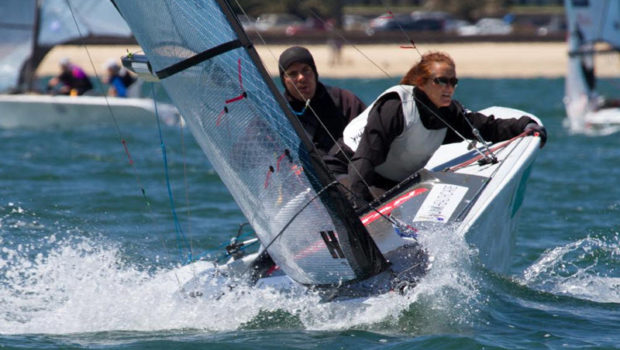
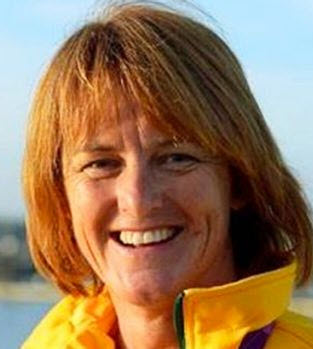


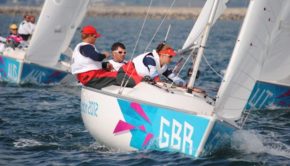
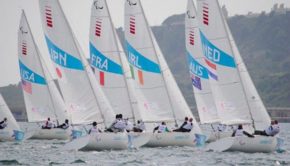
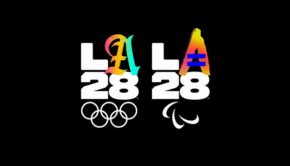
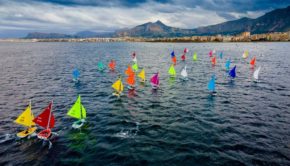
 We’ll keep your information safe.
We’ll keep your information safe.